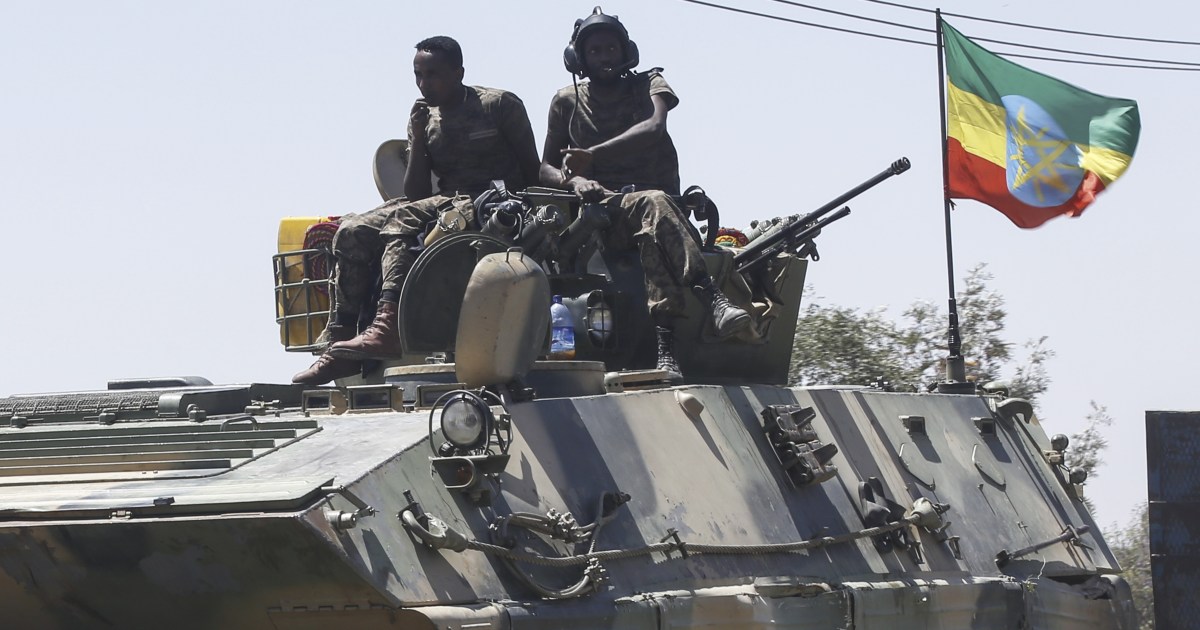Reports indicate that battles intensified on many of the fighting fronts in Ethiopia, amid conflicting reports about the gains of each team, while the federal government on Thursday set conditions for negotiations with the rebels.
The Tigray People's Liberation Front announced its control of the cities of Disi, Kombulsha and Kimisi in the Amhara region, and the fighters of the Tigray People's Liberation Front vowed to advance towards the capital, Addis Ababa, which is less than 400 km away from their forces.
The front said it was advancing east towards the town of Mele on the road to Djibouti, threatening to close a key supply line to Addis Ababa.
For its part, the Oromo Liberation Army - an ally of the front - controls some of the territory of the Oromia region surrounding the capital, and in return, Amhara fighters are massing in the region to repel any possible attack.
As for the government forces, some of them are located near the Tigray region and some are around the capital, after declaring a state of emergency.
The Ethiopian News Agency quoted an official in the capital as saying that more than 27,500 young people had been recruited to help in security operations in Addis Ababa.
Withdraw first
Politically, the Ethiopian government announced on Thursday its conditions for possible talks with the Tigray rebels, after days of intense diplomatic efforts by international envoys to avoid a new escalation in the conflict.
Foreign Ministry spokesman Dina Mufti said that the conditions for possible talks, which he stressed were not yet agreed upon, would be the rebels' withdrawal from the Afar and Amhara regions bordering Tigray.
He added, "In order for there to be a peaceful solution (..) there are conditions: First, stop your attacks. Second, leave the areas you entered (Amhara and Afar). Third, recognize the legitimacy of this government."
But he stressed, "By the way, do not misunderstand, this does not mean that a decision has been taken to engage in negotiations."
Tigrayan People's Liberation Front spokesman Getachew Reda said earlier that withdrawal from Amhara and Afar before the talks was "not at all on the table."
The federal government last week declared a nationwide state of emergency, prompting a new wave of mass arrests that has hampered aid delivery.
Officials said former Nigerian President Olusegun Obasanjo, the African Union's special envoy to the region, is leaving Thursday after a recent meeting with Abiy Ahmed.
Obasanjo recently moved to Mekele, the capital of Tigray, to meet the leaders of the Tigray People's Liberation Front.
The US State Department said Secretary of State Anthony Blinken spoke with Obasango on Wednesday and announced "strong support" for his mediation efforts and expressed hope that there was "potential" for progress.
The African Union proposes to hold preliminary talks between Addis Ababa and the Tigray Front, and to reduce the military escalation between the two sides, in preparation for their entry into a dialogue in order to find a consensual solution to end the ongoing war.
In a related context, the United States expressed, on Thursday, its concern about reports of the detention of American citizens in Ethiopia.
Al-Hurra TV quoted a US State Department spokesperson as saying that Washington is conducting active discussions with the Government of Ethiopia on this issue through the US Embassy in Addis Ababa.
The roots of the conflict
The roots of the current conflict go back to 2018, when Abiy Ahmed took power in Addis Ababa and announced political reforms.
These reforms included the removal of leaders in the army and intelligence from the people of the Tigray region, and the appointment of leaders from the Amhara and Oromo nationalities in their positions.
The crisis deepened after the elections scheduled for August 2020 were postponed due to the Corona pandemic, which plunged the country into a constitutional dispute.
Opposition forces, including the Tigray Liberation Front, accused Abi Ahmed of exploiting the pandemic to extend his term, and elections in the region were organized unilaterally on September 9, 2020, but the central government refused to recognize its results.
The dispute between Addis Ababa and the Tigray Liberation Front intensified, and turned into an armed conflict since November 2020, following the intervention of the Ethiopian army in the region, in which the central government organized new elections to form a new local government.
And last June, the Tigray Liberation Front regained control of the capital, Mekele, and the city witnessed celebrations for its supporters, while the government announced a ceasefire, but the situation has not known stability since then.

